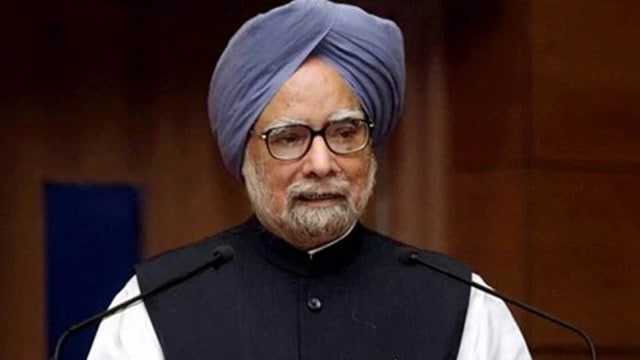Economist, RBI Governor, Finance Minister, PM: Manmohan Singh wore many hats
A pedigreed economist, a central bank governor, finance minister and the job to crown it all -- Prime Minister. Surely, that will be a tough act to follow.
 In view of former prime minister Manmohan Singh’s demise, as a mark of respect, Chief Minister Bhupendra Patel directed to cancel all his pre-decided programmes for Friday (File)
In view of former prime minister Manmohan Singh’s demise, as a mark of respect, Chief Minister Bhupendra Patel directed to cancel all his pre-decided programmes for Friday (File)IN EARLY 2016, a few months before the country marked 25 years of its famous economic reforms, one of the key architects of liberalisation and former Prime Minister Manmohan Singh shed a bit of his usual reticence at the end of a session at his New Delhi home. Asked why he chose not to write a memoir, considering that he had held top jobs in the country — chief economic advisor, economic affairs secretary, RBI Governor, Planning Commission deputy chairman, Finance Minister, and then head of the government — his response was: “The truth hurts. And I don’t want to hurt anyone.”
If at all anyone got close to getting him to open up a bit on his life, it was his daugher Daman Singh, who wrote about her parents in ‘Strictly Personal: Manmohan and Gurshararn’. As Singh famously said at his last press conference before stepping down as Prime Minister after a decade in that job, history would perhaps be kind to him.
Few would have seen the transition of a country from a policy and political vantage point — a stuttering economy, the days of the licence raj or stifling of industry or entrepreneurs, inward looking to the hesitant first steps towards dismantling the regime of administered interest rates — by signing off on the Sukhamoy Chakravarty committee, and later pushing a host of reforms at the finance ministry, including rupee devaluation along with the Reserve Bank of India, and sequencing financial sector reforms after the broader changes in the economy.
Even during that period of conflict with professional colleagues, when not everyone was in agreement with the direction of the changes and the methods to be adopted, those who differed with him still conceded that he was an “immandari aadmi” (honest person).
Singh, as well his political boss, former Prime Minister P V Narasimha Rao, were far more mindful than many about the rapid changes underway in a changing new global order by 1990. Singh had just returned after a stint in Geneva at the South South Commission while Rao, as External Affairs Minister, could sense the global upheaval after the collapse of the former Soviet Union and the East European bloc. And having been a policymaker-turned-politician, as finance minister, Singh realised that time was running out.
That may also explain the mention of the “Victor Hugo” moment in his famous Budget of 1991 which fuelled changes, leading to the country emerging as an economic powerhouse. “No power on earth can stop an idea whose time has come. The emergence of India as a major economic powerhouse in the world happens to be one such idea,” he said.
In a recognition of India’s political economy, he explained years after the 1991 reforms one of the weaknesses of the country. “In a crisis we act. After that, we return to status quo,” Singh said in an interview to The Indian Express in July 2016.
His opponents are bound to criticise what they perceive as his weakness — such as not being decisive during his stewardship of the country, as reflected in his handling of Cabinet colleagues and allies, in the famous retrospective taxation of Vodafone in the Budget by then finance minister Pranab Mukherjee, and allowing the National Advisory Council (NAC) to operate as an “extra constitutional authority”.
Few may have acknowledged the fact that it may not have been easy for someone like Singh, who had Mukherjee as his boss decades ago, to veto him at the last minute. Singh had to be persuaded to stay on as RBI Governor when Mukherjee was the finance minister in a standoff over granting a licence to a foreign bank — BCCI — which collapsed later.
To his credit, Singh was able to bring on board several talented economists while at the finance ministry laterally — the last being Raghuram Rajan, whom he first appointed as an honorary advisor to the PM. Given his professional background, Singh engaged some of his peers such as Jagdish Bhagwati and T N Srinivasan to review India’s economic reforms two years after they were launched in 1991 to offer new recommendations. It is doubtful whether any government has attempted a similar exercise.
Ironically, even when he was facing considerable flak at home after the nuclear deal with the US and other domestic issues, many global leaders were leaning on him for counsel after the 2008 global financial crisis. That included most of the leaders who were part of the rich country club — the G8, who sought his advice on handling the global meltdown. Some of them have acknowledged that, including former UK Prime Minister Tony Blair and former France President Nicolas Sarkozy.
A pedigreed economist, a central bank governor, finance minister and the job to crown it all — Prime Minister. Surely, that will be a tough act to follow.
— The writer was Resident Editor of The Indian Express in Mumbai







